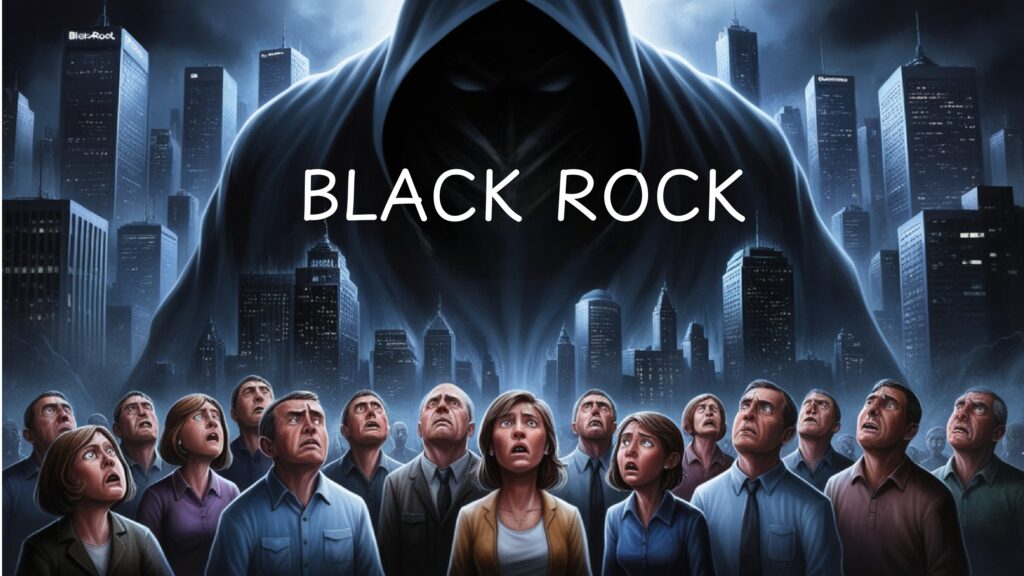What is BlackRock and why is it so powerful?
Imagine standing before a company that manages $10.6 trillion—more than half of the U.S. GDP. That company is BlackRock, one of the largest asset managers in the world. Its influence spreads across 95% of Fortune 500 companies and it’s frequently called upon by governments globally to assist in managing financial crises. BlackRock has become a subject of intense scrutiny, with many asking: Does it control the world? Or is it just riding the wave of economic growth as a passive investor?
How does BlackRock wield its financial influence?
To understand BlackRock’s reach, we first need to grasp some financial basics. BlackRock, along with similar companies like Vanguard and State Street (known as the Big Three), is an asset manager. Its primary service is managing funds like index funds and ETFs (Exchange-Traded Funds). These funds offer lower risks and more stable returns, making them popular investment choices.
But here’s the catch—BlackRock claims to be a passive investor. This means instead of constantly buying and selling stocks, they hold small shares in nearly every major company, riding the market trends. However, this “passive” label grants them significant legal advantages, allowing them to avoid strict regulations that active investors face.
Who really controls the money BlackRock manages?
Though BlackRock manages trillions of dollars, the money doesn’t belong to them. Most of the capital comes from institutional investors—pension funds, insurance companies, and university endowments. Surprisingly, a lot of that money comes from everyday people through pension plans, 401(k)s, and insurance policies. But even though it’s technically your money, you don’t get to decide how or where it’s invested. BlackRock’s power lies in its ability to pool this money and control how it’s invested.
What is universal ownership, and why is it significant?
BlackRock’s massive holdings give it a concept known as “universal ownership.” This means they hold shares in every major company across the market. While their stake in individual companies is often between 3% and 10%, this can make them the largest single shareholder in many corporations. For example, BlackRock and the Big Three together own 16% of Amazon—more than Jeff Bezos himself.
Do shareholders like BlackRock have control over corporations?
Yes, and this is where it gets concerning. The number of shares an investor holds determines their voting power in corporate decisions, like electing board members and approving executive pay. BlackRock, being one of the largest shareholders in most major companies, has a lot of votes. But here’s the kicker—these votes don’t actually belong to them; they come from the pension funds, retirement savings, and investments of regular people. When you invest through a pension or mutual fund, you’re essentially signing over your voting rights to BlackRock.
How does BlackRock’s voting power shape the economy?
BlackRock’s voting patterns usually align with company executives’ recommendations. This alignment is beneficial for company leaders but not necessarily for employees or the public. Since the 1980s, executive pay has been tied to stock performance, pushing managers to prioritize shareholder profits. This often leads to decisions that squeeze worker wages and contribute to income inequality.
Does BlackRock contribute to economic inequality?
The concentration of wealth in the hands of the top 1% has skyrocketed, with 50% of corporate equity held by this tiny group. While BlackRock and similar asset managers may not directly cause wage stagnation, their investment strategies favor corporate profits over worker benefits. This contributes to the widening gap between the wealthy and the working class. For instance, universal ownership encourages companies to keep prices high to maximize profits, which leads to higher costs for consumers and fewer benefits for employees.
How does BlackRock influence political power?
BlackRock’s influence isn’t limited to corporate boardrooms—it extends into politics as well. There’s a revolving door between BlackRock and major government institutions like the U.S. Treasury and the Federal Reserve. Many former government officials now work for BlackRock, while its CEO, Larry Fink, has even been considered for top government positions. This close relationship has allowed BlackRock to dodge stricter regulations and maintain its dominant position in the financial world.
Is BlackRock too big to regulate?
In the aftermath of the 2008 financial crisis, there were calls for stricter oversight of large financial institutions like BlackRock. However, BlackRock’s lobbying efforts, including targeted ad campaigns and political influence, helped it avoid these regulations. A loophole in the system allows them to self-certify their “passive” status, meaning they essentially police themselves. This lack of oversight raises concerns about the risks they pose to the broader economy.
Does BlackRock own everything?
No, BlackRock doesn’t own everything, but it owns shares in nearly everything. While they don’t directly control every company, their influence is undeniable. Their investments span across industries, and they use this power to profit from every sector of the economy, often at the expense of regular people. The company profits by managing others’ money, leveraging legal loopholes, and wielding outsized control over global markets.
Is BlackRock’s influence harmful?
BlackRock didn’t create the current financial system, but it has mastered the art of navigating it to its advantage. Its dominance raises questions about whether this system, where the wealthy get wealthier and workers are left behind, is sustainable. Perhaps the bigger question is: Do we need a new financial system—one where the people who create the wealth have a say in how it’s distributed?


